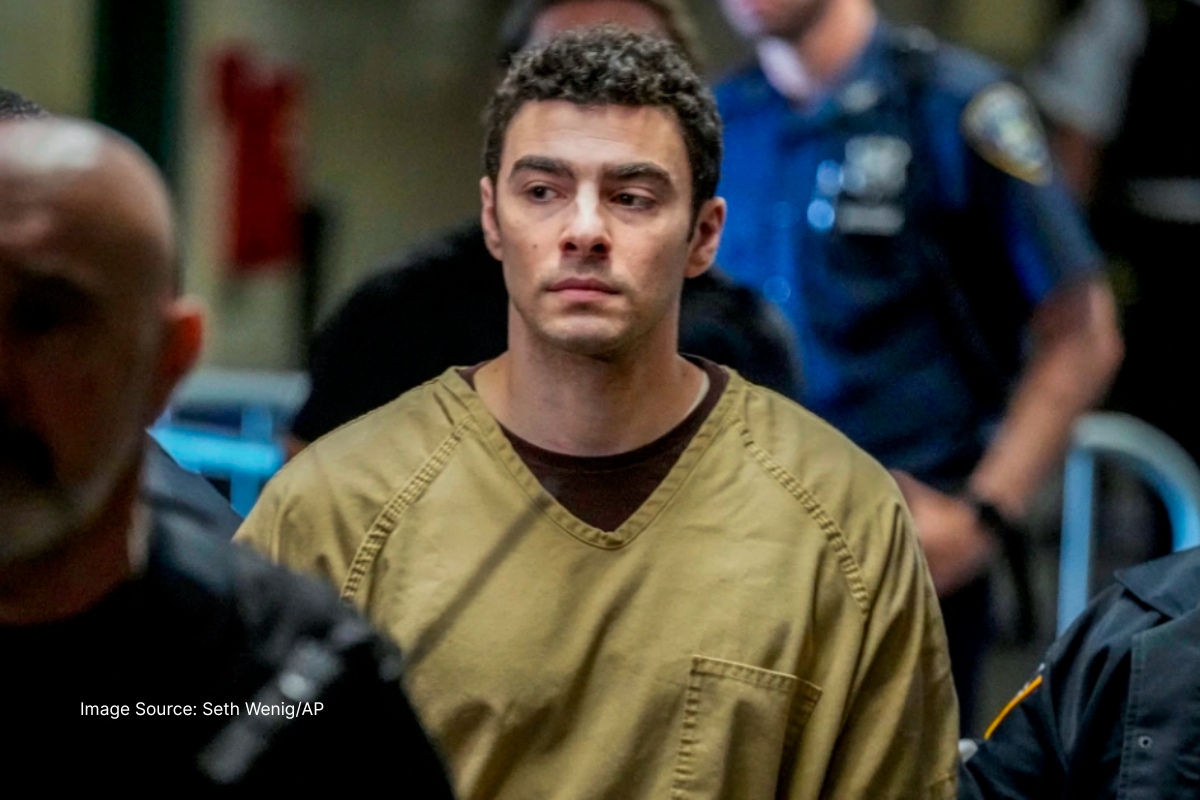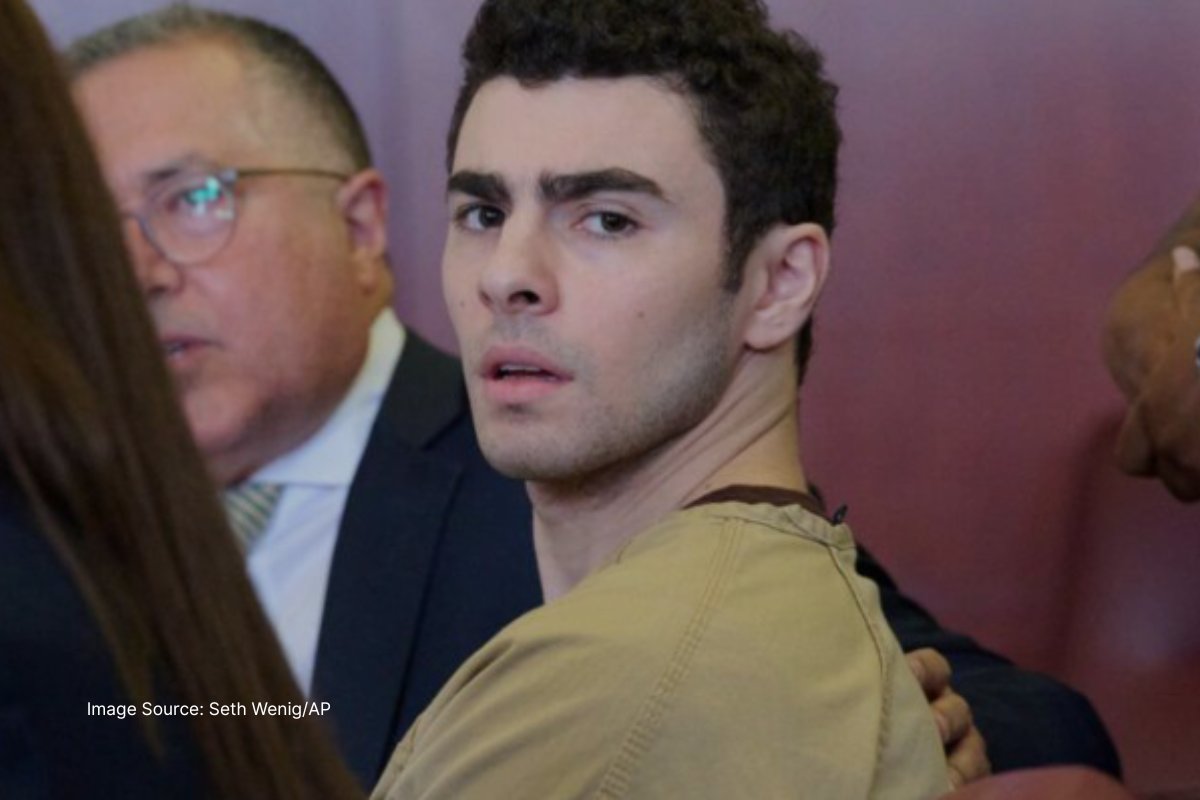What Was Dropped? — The Recent Decision
On September 16, 2025, a New York judge (Gregory Carro) dismissed two terrorism‐related murder charges against Luigi Mangione.
Specifically, the charges struck were:
➤First-degree murder in furtherance of terrorism under state law.
➤Second-degree murder as a crime of terrorism under state law.
The reason: Judge Carro found that the evidence presented to the grand jury was legally insufficient to meet the legal definition of terrorism under New York law. Among other things, the prosecution did not sufficiently establish that Mangione’s intent was to intimidate or coerce a civilian population or to influence government policy.
What Judge Carro Actually Said About “Terrorism” Under NY Law
From the court’s Sept. 16, 2025 omnibus decision in People v. Luigi Mangione (New York State Unified Court System):
The NY terrorism scheme (Article 490) was enacted right after 9/11 and “liberally borrowed” from federal legislation, with the statute aimed at conduct like the WTC and Oklahoma City bombings.
To turn a homicide into “murder in furtherance of an act of terrorism” or “murder as a crime of terrorism,” the People had to show not just an intentional killing, but terroristic intent—i.e., an intent to intimidate or coerce a civilian population, or to influence/affect government policy or conduct. The court found the grand-jury evidence legally insufficient on that element.
Judge Carro: “Penal Law provisions are…construed…to ensure penal responsibility is not extended beyond the fair scope of the statutory mandate.”
Key reasoning: the prosecution “conflate[d] an ideological belief with the intent to intimidate or coerce a civilian population.” Animus toward UHC/the health-care industry ≠ proof of the specific terroristic intent the statute requires.
The People “appear to conflate an ideological belief with the intent to intimidate or coerce a civilian population.”
Result: Counts 1–2 (terrorism-based murder counts) dismissed; Count 3 (plain intentional murder in the second degree) stands.
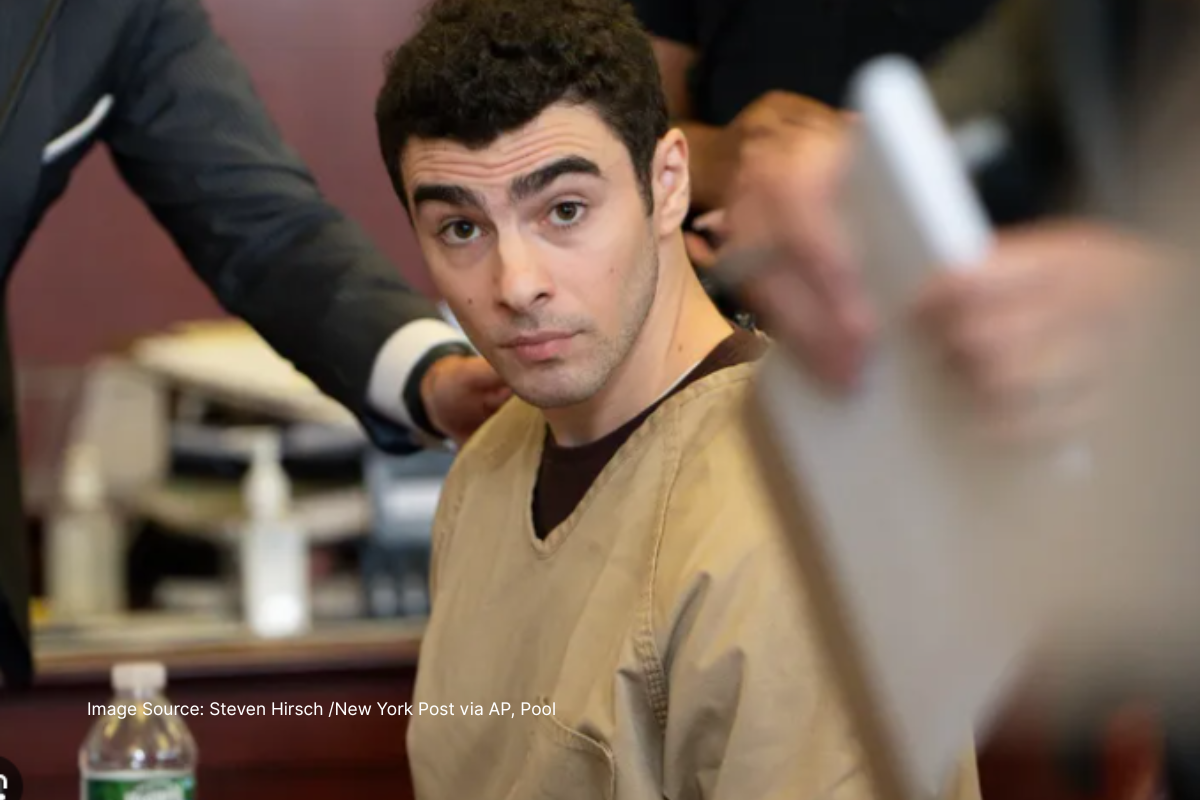
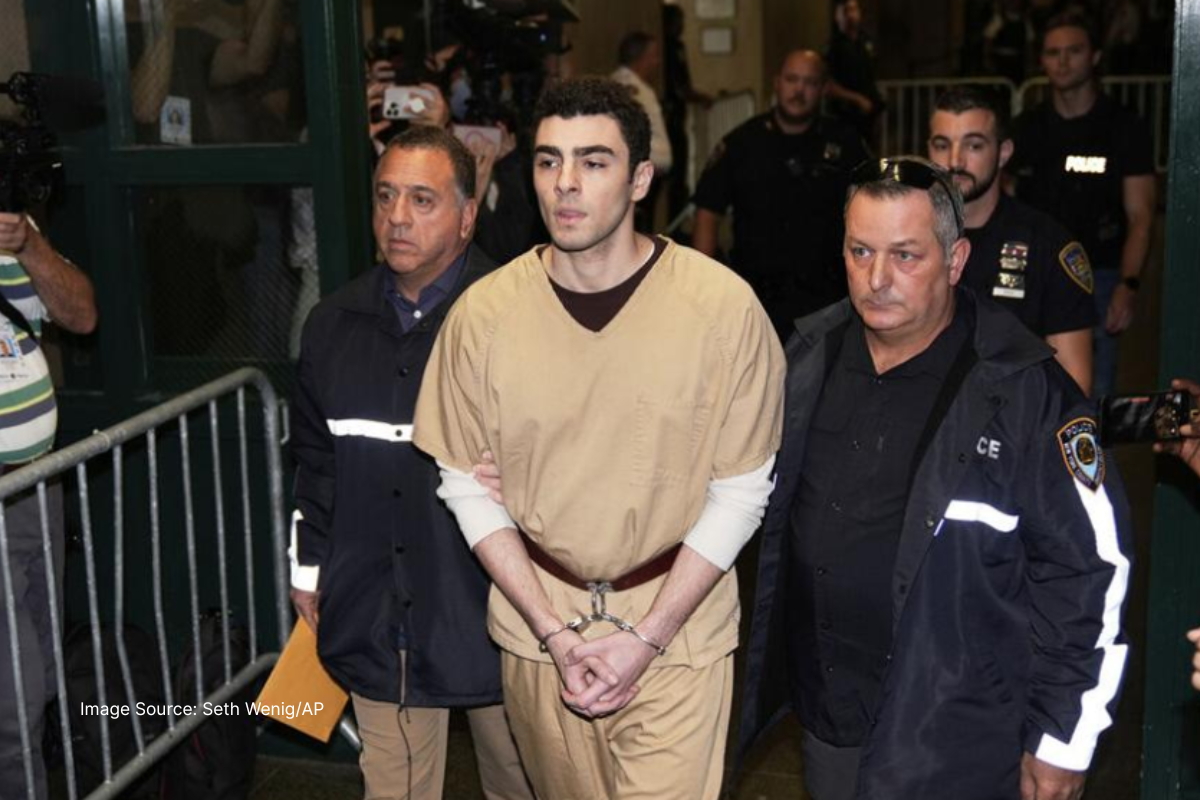

What Charges Still Remain?
Even though the terrorism enhancements were dropped, Mangione is still facing several serious charges:
State Case (New York):
A charge of second-degree murder still stands. This requires proof that Mangione intentionally killed Brian Thompson, but without the terrorism label.
Plus, multiple related counts: weapons possession, false identification etc.
Why second-degree murder? (not first degree)
New York doesn’t do “premeditation = first degree.” Premeditation is not an element in NY. Second-degree murder (§ 125.25(1)) is simply: intent to cause death + causing death. First-degree murder (§ 125.27) requires one of a specific list of aggravators (e.g., victim is a police officer/judge/witness; multiple victims; murder for hire; torture; during certain felonies; or—as charged here—“in furtherance of an act of terrorism.”) If the aggravator fails, the case defaults to intentional second-degree murder.
So even if the killing was planned, without a qualifying § 125.27 aggravator (and with the terrorism theory dismissed), second-degree is the correct NY charge that remains. Sentencing exposure for § 125.25 is typically 25-to-life (judge-set minimum), while § 125.27 can mandate life without parole in certain circumstances; NY has no active death penalty.
Federal Case:
He is indicted on federal charges (including stalking, using a firearm to commit murder, etc.) that do allow for the death penalty if convicted. The U.S. Attorney General (Pam Bondi) has formally directed that federal prosecutors pursue the death penalty in his case.
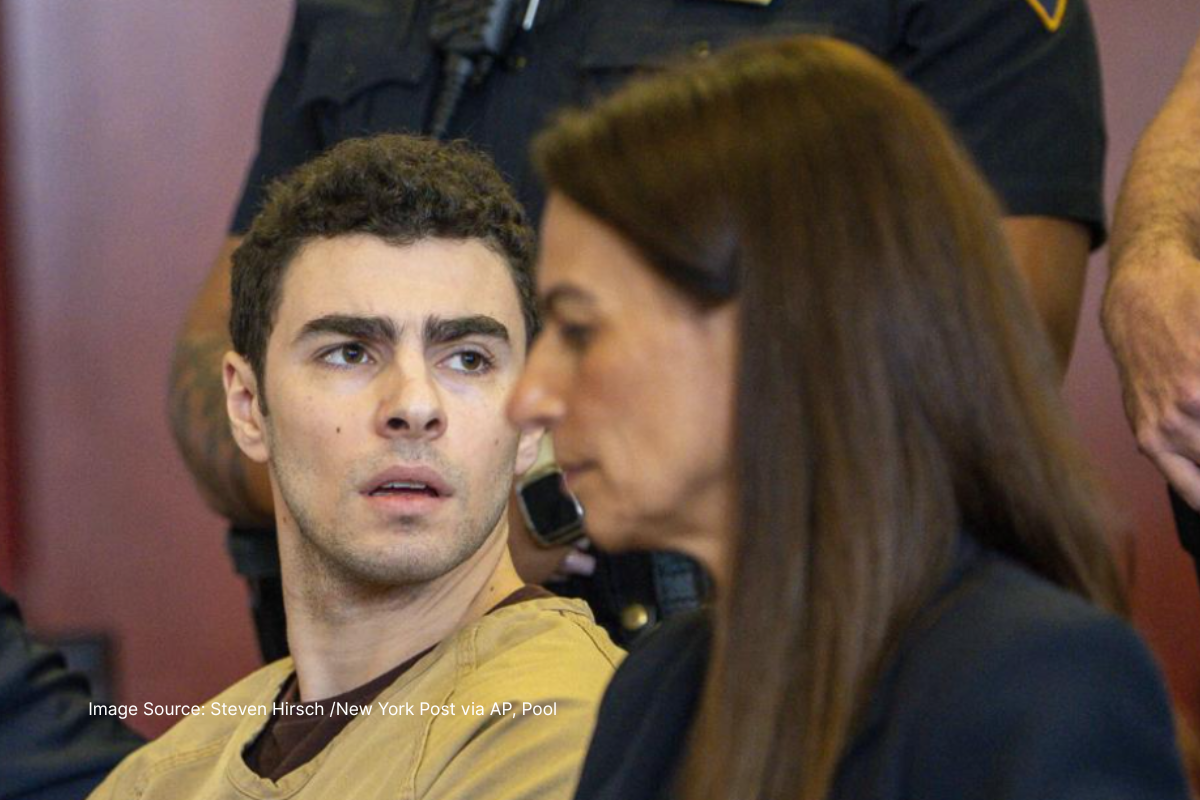
Legal & Practical Implications
Dropping the terrorism charges does not mean Mangione is off the hook; it changes what prosecutors need to prove, the severity of sentencing in the state case, and what options the defense has. Some of the key implications:
Sentencing Exposure in State Court Reduced
If the terrorism charges had stuck, the state case could include life without parole (or harsher mandatory sentencing) under NY law. With them gone, he faces second-degree murder, which carries a long sentence, but typically life WITH possibility of parole in many cases.
Evidentiary Burden
Proving someone committed murder as an act of terrorism requires showing intent beyond just the killing: intimidation, coercion, or influence over public policy or civilians. That’s a much higher bar, and the judge found it was not met in this instance.
Federal Death Penalty Remains Possible
Since terrorism charges were dropped at the state level, that doesn’t change the federal case. If convicted under certain federal statutes, he could still face execution.
His lawyers are already trying to block the death penalty option, arguing among other things that comments by public officials (including the U.S. Attorney General) have prejudiced the case.
Double Jeopardy Arguments Rejected So Far
There was an argument from defense that being tried in state and federal court for the same killing might violate double jeopardy. Judge Carro rejected that as premature since neither case has gone to trial yet. The legal concept is that state and federal governments are separate sovereigns, so dual prosecution is often permissible.
Trial Dates & Upcoming Hearings
State level: Hearing scheduled for December 1 for state case.
Federal: Next appearance is December 5, and prosecutors must formally respond to motions challenging the death penalty designation by October 31.
What Stays Unresolved / What to Watch
Whether the defense successfully convinces a federal judge to block the death penalty (on constitutional or prejudicial grounds) is a big question.
How strong the evidence is for the remaining state charges—since without the terrorism enhancement, the narrative and proof required are narrower but still serious.
How public sentiment, political pressure, prosecutorial strategy, and publicity may affect proceedings. The defense claims there have already been prejudicial acts (public comments, media portrayal, etc.) that could taint fairness.
So, Bottom Line…
Yes, the terrorism enhancements were dropped at the state level. That’s a win for the defense in narrowing what the state must prove and reducing possible punishment state-side.
No, this does not remove the possibility of the death penalty — because that still looms in the federal prosecution.
The case is still far from over; much depends on how the federal court handles the death penalty issue, how he fares in the state trial, how strong the evidence is, and what legal obstacles the defense can raise.
Related Articles
Luigi Mangione Death Penalty Dropped, Reshaping Prosecution Strategy
A judge has removed the death penalty as a sentencing option in the case against Luigi Mangione, delivering a major win for the defense and significantly narrowing the scope of the prosecution. The ruling eliminates the most severe potential punishment Mangione faced...
Neo Langston Arrested for Failure to Appear as LA Witness
Neo Langston was arrested in Montana this week on a Los Angeles Superior Court warrant for failure to appear as a witness, according to Lewis and Clark County Jail records. Montana authorities confirmed they were assisting the Los Angeles Police Department’s...
Hold On a Minute: What Media Is Saying About Nick Reiner
There has been exactly two real developments in the Nick Reiner case: a change in attorneys and a new arraignment date set. That’s it. No evidence dump.No discovery.No probable cause affidavit released.No forensic details confirmed on the record. And yet somehow —...


